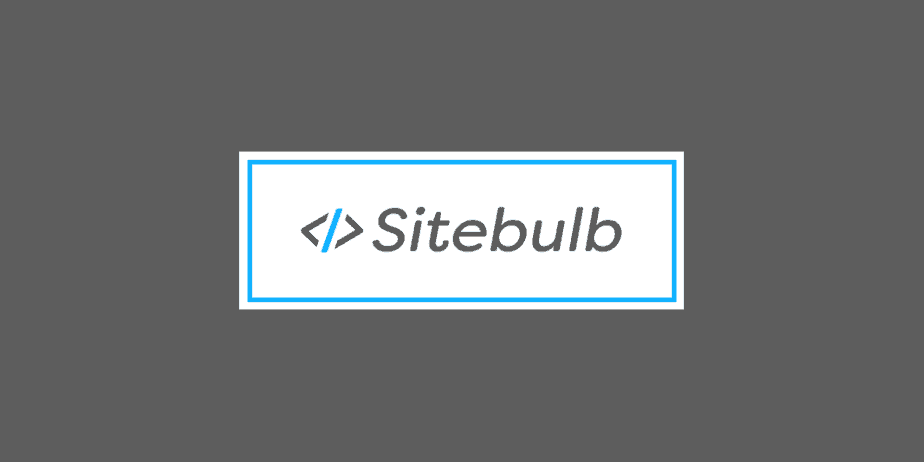Several SEO tools, like DeepCrawl, Botify, and Screaming Frog, may be used to run technical SEO audits on your website. Yet, we identified a new desktop-based crawler called Sitebulb that deserves to be included among these industry standards. Here is our Sitebulb review, in which we’ll review the numerous options the tool provides and if it’s worth investing in.
What Is Sitebulb?
The Sitebulb is a desktop website crawler, meaning it is a standalone app you run on your computer. Sitebulb can crawl websites, provide actionable insights, and assist you in improving organic ranking positions and traffic.
What Does Sitebulb Do?
Although there are several crawling tools, Sitebulb stands out for its attractive dashboard and very useful results. Sitebulb promises to show you how “crawler-friendly” your website is and how search engines perceive it. For search engine optimization, Sitebulb will ensure that search engines crawl and index content.
The Sitebulb Crawl Report assists you in developing an overview of how easily you can crawl the site and what kind of data crawlers are looking for. Sitebulb, for example, will highlight faulty redirects or internal and external links. Sitebulb also displays the ‘crawl depth,’ status, and server response codes. As a result, you receive a full perspective of your site’s layout and an in-depth look into your crawl effectiveness.
Is There A Free Trial?
Sitebulb does provide a free 14-day trial, which may be found at https://sitebulb.com/download/.
Sitebulb Pricing
The Sitebulb requests payment after a free trial. After that, the Lite package costs $13.5 per month and features.
- 10,000 URLs per audit.
- Basic PDF reports.
- Audit Scores.
- Duplicate Content.
- JavaScript Crawling.
- Basic SEO Audit.
- 138 hints.
- Crawl Maps.
- 315 Hints.
- Customized PDF Reports.
- Compare Audits & History.
The Pro package costs $35/month and includes.
- 500,000 URLs per audit.
- Advanced SEO Audit.
- Page Speed & Mobile Friendliness.
- Front-end & Code Coverage.
- Search Console Keywords.
Sitebulb Features
The Sitebulb features are listed below.
Priority Tips – Save time looking into issues with more than 300 pre-processed checks on content optimization.
Verification Scores – Give the most significant verification scores. Sitebulb contextualizes audit results and creates executive summaries for customers and management using audit ratings.
Flexible PDF Reports – The appropriate PDF report is created. Configure the PDFs for different use cases, such as sales prospecting, consumer reports, or C-suite executives.
Comparison Of Audits – Monitoring trends and previous movements between audits to assess and visually illustrate changes.
Data Visualization – Use visuals to quickly discover themes and combine maps to help you communicate complex topics.
URL Explorer – You may use URL Explorer to create custom reports that filter, sort, and dive into your crawl data.
Check Massive Websites And Limitless Domains – Perform thorough evaluations for all your customers, regardless of magnitude or number.
Auditing Website
Before creating a new project, you must name it and enter the website URL you wish to crawl. After setting up your audit, you’ll have numerous options, or you may run with the defaults and start the crawl. In addition, you may add and check for extra data while setting up your audit.
- Mobile Friendly, Front-end, and Page Speed.
- Page Resources.
- International.
- Google Search Console data.
- Structured Data Extraction.
- Content Extraction/Content Search.
- AMP.
- Google Analytics data.
- XML Sitemaps, a URL list, or a crawl of the website.
- Schedule the audit to run at a certain time.
Sitebulb will offer a live snapshot of the URLs, how long the audit will take, and the categories of URLs being crawled. Depending on the parameters you choose while setting up the first audit, the crawling pace is rather fast, averaging 7 URLs per second.
Audit Overview
After the audit is finished, Sitebulb will present a variety of ratings and tips, including.
- Audit Score.
- SEO Score.
- Page Speed Score.
- Security Score.
The crawl depth of the URLs that Sitebulb discovered and the various status codes will be displayed to you by Sitebulb (2xx, 3xx, 4xx, 5xx, forbidden, or disallowed URLs). In addition, on the URLs Tab, Sitebulb will break down the SEO essentials for each page, displaying the following information.
- URL Rating.
- URL Encryption.
- HTTP Status.
- Content Type.
- Meta Title/Length/# Of Titles.
- Meta Description/Length/# Of Descriptions.
- H1 Tag/Length/# Of H1s.
- The number of words, phrases, and paragraphs on each page.
- How long will it take to read your content?
- How simple your content is to read.
- The sentiment is the emotional focus of your page message.
- Indexability Status.
- How the crawler discovered your URLs.
- URL Source (anchor, canonical link, etc.).
- Parent URL.
Sitebulb will also present various “hints” or optimization chances to assist you in improving your website, which is beneficial. Suggestions include upgrading meta descriptions/meta titles or more technical effort to improve your website’s security/page performance. The tool will also indicate which issues should be addressed in order of priority, whether critical, high, medium, or low.
Sitebulb System Requirements
Sitebulb is compatible with both Windows and Mac. The system requirements for each are listed below.
Windows System Requirements – The system must have a 64-bit version of Windows 7/8/10/11 and at least 4GB of RAM.
Mac System Requirements – A system with at least 4GB of RAM and a 64-bit version of MacOS is required.
The Bottom Line:
Sitebulb is a powerful crawling tool that every SEO should check out. It has many of the same features as Deep Crawl, Screaming Frog, and Botify. In addition, Sitebulb provides valuable data that assists web admins in improving their websites and making them SEO friendly. The Lite package costs $135 per year, making it reasonably priced.
